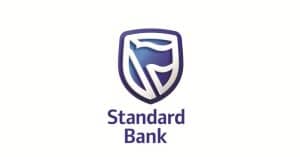South Africa’s financial sector is undergoing a remarkable transformation, driven by the adoption of blockchain and decentralized technology. The integration of these innovative solutions is revolutionizing traditional banking methods, offering more secure, transparent, and efficient financial transactions. As the demand for digital solutions grows, South African institutions are increasingly exploring decentralized ledgers to meet modern needs. This shift not only enhances financial inclusivity but also positions the country at the forefront of technological advancement in Africa.
This evolution is particularly significant given South Africa’s position as an economic powerhouse on the continent. The embrace of blockchain technology by the financial sector here is a testament to the nation’s commitment to technological innovation and economic growth. By fostering a more inclusive financial environment, South Africa stands to benefit from increased economic participation. Furthermore, decentralized solutions are poised to address long-standing challenges such as high transaction costs and limited access to financial services.
Blockchain in South Africa’s financial institutions

Blockchain technology offers unparalleled advantages to South Africa’s financial institutions. These include enhanced security, reduced fraud, and transparent transaction processes. Major banks and financial service providers are now adopting decentralized ledgers to enhance operational efficiency and customer trust. This has created a competitive landscape where companies that leverage blockchain stand to gain significantly.
One of the key applications of blockchain in the sector is smart contracts. These self-executing contracts with their terms of agreement directly written into code provide a new level of automation and reliability. By eliminating intermediaries, smart contracts reduce the risk of errors and fraud, leading to significant savings in time and cost. This innovation is especially pertinent in South Africa, where trust in conventional financial systems can often be a barrier to broader economic participation.
Decentralized finance, or DeFi, is another critical area gaining traction. Through DeFi platforms, South Africans gain access to a myriad of financial services without relying on traditional banking intermediaries. This includes lending, borrowing, and investing opportunities that are more accessible and often more affordable. By leveraging decentralized networks, DeFi is reshaping the financial landscape, enabling a broader spectrum of the population to participate in the economy.
The rise of blockchain startups
A new wave of blockchain startups is emerging in South Africa, bringing innovative solutions to the financial industry. These startups are at the forefront of developing technologies that cater to both businesses and consumers, enhancing efficiency and unlocking new opportunities. By addressing unique challenges with tailored solutions, these companies are helping transform the local financial sector.
Companies such as Luno and Custos Media Technologies are leading the charge, providing cutting-edge blockchain applications both domestically and internationally. By leveraging local talent and expertise, these startups are gaining global recognition. Their success not only drives innovation but also showcases South Africa’s potential to become a leader in the fintech space.
These entrepreneurial efforts are supported by various initiatives aimed at nurturing talent and fostering innovation. Accelerators and incubators across South Africa offer essential resources to blockchain startups, encouraging growth and sustainability. This supportive environment enhances the country’s commitment to fostering a vibrant and dynamic digital economy.
Regulatory developments and blockchain
The integration of blockchain in South Africa’s financial sector requires robust regulatory frameworks to ensure stability and protect consumers. Regulatory bodies are keen to support innovation while maintaining security and compliance. Progressively, these institutions are introducing policies that strike a balance between promoting technological advancement and safeguarding financial stability.
The South African Reserve Bank (SARB) has taken proactive measures to explore the potential of blockchain and cryptocurrency. By initiating projects like Project Khokha, SARB demonstrates its commitment to understanding and integrating new technologies. These efforts are crucial in establishing a stable regulatory environment that encourages blockchain adoption.
This regulatory vigilance emphasizes fostering a secure and reliable space for blockchain innovation. South African authorities are collaborating with stakeholders to draft guidelines that accommodate emerging technologies. As these frameworks evolve, they will play a pivotal role in accelerating blockchain adoption and maintaining the integrity of the financial sector.
Challenges and future outlook
While blockchain and decentralized technology show promise, several challenges remain in South Africa. Issues such as technological infrastructure, public awareness, and regulatory clarity need to be addressed to ensure widespread adoption. However, the potential benefits far outweigh these hurdles, making the transition an enticing prospect for the financial sector.
Education and awareness-raising efforts are essential to overcoming these barriers. By enhancing digital literacy, South Africa can empower citizens to fully engage with blockchain technologies. This, coupled with ongoing improvements in infrastructure, will significantly contribute to the sector’s growth.
The future outlook for blockchain in South Africa’s financial realm remains bright. As the nation continues to embrace decentralized technologies, opportunities for innovation and growth will abound. Through collaboration, investment, and regulatory support, South Africa is well-positioned to emerge as a leader in the global digital economy. By leveraging its unique position, the country can achieve greater financial inclusion and economic prosperity.



